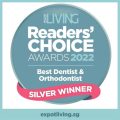As we stock up our cupboards and order our groceries we might find ourselves buying or consuming things we normally wouldn’t. Many find comfort in food and others may find comfort in restriction. Having a balanced and wholesome diet is not just essential for our overall health but also for the health of our mouth. Our mouth can show us many things about our general health including stress, nutrient deficiencies, systemic inflammation, digestive issues, sleep/breathing disorders and other chronic health concerns such as blood pressure and diabetes. To help keep our body, teeth and gums healthy here are a few top tips!
- Avoid snacking as much as possible. Each time we eat, the pH of our mouth drops from its neutral pH level. This is to help break down food because the mouth is the beginning of our digestive tract. When that drop reaches 5.5 or less, we increase our risk of tooth decay, so the more we snack the more we increase our risk. Try to stick to 3 wholesome meals to get you through the day and drink plenty of water to manage hydration and the desire to snack. After snacking, especially if snacking on sweets or carbohydrates – try having some plain water afterward to help wash away any debris and neutralise the mouth as soon as possible.
- Swap to smarter carbs: Carbohydrates are great for our brain and bodily functions but refined and highly processed foods often contain little nutritional value and can feed the “bad” bacteria in our mouth that make plaque. Wholesome carbohydrates like potatoes and other starchy vegetables, beans and whole grains like quinoa, provide a huge range of vitamins and minerals along with essential fibre. Choosing whole foods not only helps your body stay healthy but also your gut microbiome too; that is the incredible matrix that whole foods contain helps to keep you fuller for longer and allow your “good” oral and gut bacteria to function and provide you with optimal protection and function from a cellular level. Try swapping out packaged crisps for oven baked potatoes or make some roasted chickpeas for a healthy snack.
- Drink water – plain water: Adding fruits to your water might seem like a great way to jazz things up a little but this could actually increase your risk of tooth decay. This is because it alters the pH of the water and adds in acids and sugars. If you must add something into water try a sugar free alternative such as oils or herbal teas like peppermint or chamomile.
- Avoid juices: Juices are one of the biggest contributors to dental decay, alongside soft drinks. This is because the consumption of a glass of juice can be the equivalent of 5+ pieces of fruit – this means a dramatically increased amount of sugar being consumed daily along with acids running over the teeth. Juices should be considered a “treat” in the same way that soft drinks and milkshakes are.
- Get your good fats: Omega 3 and unsaturated fats found in nuts, seeds, avocados and fish are excellent additions to a healthy lifestyle while keeping you fuller for longer. They help fuel us and the microbes in our gut and mouth. Incorporating these into your diet can help keep your immune system strong, reduce inflammation in your body and gums, regulate hormones and help reduce your risk of tooth decay especially when these foods are eaten in place of simple, refined carbohydrates. What’s not to love!
- Avoiding sweetened foods and beverages is always a good choice. If you choose to indulge in sweets, to help reduce your risk of dental diseases try to keep them minimal in amount and frequency. Remember, anything that is really sticky can put you at a higher risk due to the nature of them sitting on the teeth and saliva being unable to shift the debris. Instead of dried fruits, candy, toffees and caramel, opt for real whole fruits, nuts or dark chocolate. Some great and fun alternatives can be “cookie dough” made from chickpeas and “chocolate mousse” made from avocado and cocoa.
If you would like more information about any of these issues please contact Maritza Britton.
Expat Dental Doctors and Hygienists are available to provide you with confidential expert advice on your oral hygiene and any other concerns. We also offer video tele-conferences to allow you to chat in safety..





